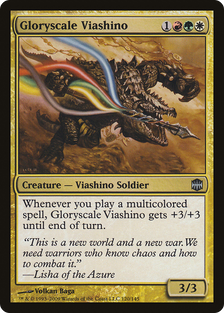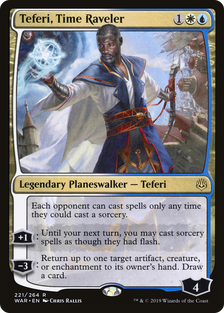Migration Assistance: From EDH to PDH and why?
- PDH Home Base

- Sep 8, 2019
- 7 min read

“Only commons? That can't be fun” or “I won’t be able to do really cool stuff” are the kind of reactions I often get from EDH players when I tell them about PDH. I don't think these reactions reflect what the format is really like and are mostly due to lack of knowledge about the format. There will be players who are just not interested and that is totally fine. However there will also be people put off by misconceptions who might enjoy the format a lot if they are given the incentive to try it. The first step on such an endeavour is clearing up the misconceptions. The obvious way to go about this is to tell them about all the cool stuff you can do in the format. This is not always the best way.
A few weeks back I was playing a regular game of commander. After the game we chatted a little. As often comes up during these conversations, we ended up talking about things we did not like in commander and things we felt people should not do. Mass land destruction, stax cards, and fast one/two card combos were the most common complaints. I had talked to one of the players before the game about PDH and he did not show interest. Now I heard him list all the things he dislikes in EDH and I realised PDH has none of those. That made me wonder if I could have presented the format in a different way to get him interested.
Based on these conversations, my new PDH sales pitch is to highlight both the cool things it has and the unpleasant things it doesn’t. These are the topics I want to talk about here and let you decide which of these point to highlight when talking to potential new players. What really sets us apart from regular commander are small differences that have a huge impact. Let’s take a look at them:
The good
Aggro, Token and Voltron are strategies you can play in EDH. However they are generally considered on the weaker side of the spectrum. With a total of 25% less life to gnaw through and board wipes not lurking around every corner, aggro is a lot better in PDH than EDH. The same can be said for Voltron strategies. The 5-point drop in the commander damage threshold and the lack of board wipes make a big difference for the viability of the strategy. The staying power of creatures also benefits go wide strategies like token decks. If you love playing Uriel, Xenagos or Trostani in EDH you will find similar decks in PDH that are more powerful relative to their format. Take a look at Gloryscale Viashino, Bloodbraid Elf and Sigil Captain for instance.
Pretty much all of EDH’s popular midrange strategies are also very playable and really good in PDH. Flicker decks, graveyard strategies, attrition, good stuff and even toolbox approaches. Brago, Muldrotha or Teysa rock your boat? Come on over, we have you covered with Mistmedow Witch, Sultai Soothsayer and Maw of Obzedat.
One last thing I don't want to skip is the budget topic. No one who can afford to play magic at all will be excluded from playing this format due to budget reasons. For me that makes it the most inclusive casual format there is. Being cheap is also a boon for people who love to brew or people like me who just need a lot of variety in what they play. You will also never face these “pay to win” situations where spending more for cards like Timetwister or Imperial Seal increases your win rate; Rhystic Study is the most expensive card in the format and it’s pretty reasonable.
The bad
How do you play control in a multi-player setting? One-for-one trades will leave you behind on resources so you need to have ways to slow the game down and get to your winning late game that effects everyone. There are many ways to do this in EDH but stax and tax effects are among the most powerful. Hard or soft locks are generally not as much fun to play against as the game is not strictly over but in many cases it might as well be. To some extent mass land destruction and pillow fort strategies follow the same vein. None of these exist in PDH. So you just can't play control? Well, you can, but you are forced to do so in a more balanced way. Card draw and recursion are the tools you use to counteract your loss of resources. This makes games with a well-built control deck at the table more interactive and challenging for all involved. Are Kess, Queen Marchesa or Oloro the kind of commanders that make your heart skip a beat? Take a seat we have some decks to brew. With Possesed Skaab, Knights of the Black Rose and Sludge Strider you can build decks that will have a similar feel but at the same time their own unique game plan.
Another thing that PDH does not have is extremely fast mana. It does have all the ramp you could want, be it land-fetch, rocks, or dorks; but no one will be sitting on 5+ mana on turn two. Why is that a good thing? Well there won’t be games that you just lose on RNG because someone had turn one Sol Ring into signet. For me those are not very fun, even when I have that start because I feel winning or losing was not due to skill but luck of the draw and variance.
The Ugly
You had a great start, drew well, hit your land drops and are just one turn away from sealing the deal when you lose to a lucky top deck Tooth and Nail. Feels bad. What I have noticed over the years is that “I win” combos and infinite loops are generally hated by newer plays and veterans alike. It seems to give them the feeling that what happened was unfair and they had no actions available to stop it. To me that is a general misconception about combos. Even a one card “I win” combo like Tooth and Nail has hoops to jump through. First of you need to get to at least nine mana and still be in the game. Then you need the spell to resolve and the creatures to survive. What makes a combo powerful is speed, consistency and resilience. Being a one card combo, consistency is pretty high for Tooth and Nail.
This on the other hand is considered one of the best PDH combos. Four cards and a lot less tutors to boot.
In PDH we also have combos and yes, they will win games. The difference is that they are all either slow, inconsistent, or not very resilient. The fact that we don't have that crazy fast mana magnifies the slow aspect; having few and narrow tutors dampens the consistency aspect; and the ways we can answer them hurts the resilience aspect. Imagine you had 5-8 slots in your EDH decks for cards you would play even if no one ran a combo. Imagine these cards also read “Stop any combo”. Combos would occasionally end games but it would feel more like an achievement than cheating. In very simplified terms, that is what instant speed creature removal is in PDH. There are no combos in PDH that are not creature based in some way. That makes answering combos a lot more unified, especially when your usual board wipe slots are now filled with more targeted removal.
The cool stuff
So what is it that PDH has on top of fixing some things many EDH players dislike? After all it's all for naught if what you get to play with is boring. This is a bit of a difficult task as everybody enjoys slightly different things and to make matters worse, every card that is PDH legal is also EDH legal. However, the vast majority of legal PDH commanders (uncommon creatures) are not legal EDH commanders. At the time of writing, EDH has 859 legendary creatures. In comparison, PDH has 3411 uncommon creatures. Granted, many uncommon creatures are pretty bland but you get a whole new swath of commanders (about four times as many!) to brew and play with. Also there is no EDHREC. Yes we have online resources that are constantly growing, but nothing like that volume of data that is out there for EDH. This makes it a brewer’s paradise where you can really go all out expressing yourself in deck building. Being as inexpensive as it is it's also a great way to introduce new players to commander in general. You can start off with PDH and have them gradually upgrade. Also it's not hurting your wallet to just have a PDH deck or two lying around for those times when you get tired of getting Craterhoofed out of a game or winter orbed into saltyness. Speaking of salt and EDHREC, only a single card (Rhystic Study) that has a salt score on EDHREC is legal in PDH.
Well there you have it. Most of what we lose transitioning from EDH to PDH actually moves the play experience closer to what many casual EDH players are looking for.
Now if your play group plays at a highly optimised or even competitive level this might sound boring to you. Fear not—in a future article I will explore the top end of the PDH power curve where you quickly find yourself putting those Dispels and Pyroblasts back into your decks.
I hope that this has been of help to bring new players into the fold. Coming soon we’ll have some articles on converting existing EDH commanders into PDH decks. If you’re intrigued by the idea of transporting a deck you like into this format, keep an eye out for those.
-Ursine
@PDH_Homebase






























































Comments